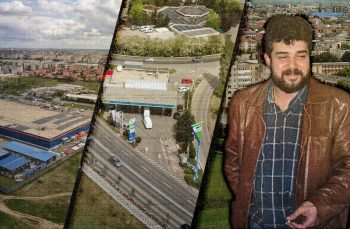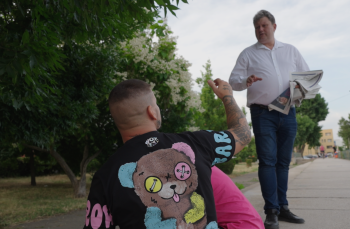There’s no one at home
Your child’s in tears as the stress, fatigue and tension are too much. Your parents tug your arm. They’ve got more to say about your decision even though you’ve explained your reasons for leaving at length. Everyone wants to have their say, from the neighbour washing his car to the taxi driver who asks where you’re going. They all give unsolicited advice about what you should do, how you can make your money go further, and how you should find your bearings when you get there, speaking as if they know exactly what you’re going through and what’s on your mind. After all, they’ve been “there” too. Or a loved one of theirs is “there”. Your friends try to encourage you but blurt out things like: “Are you going there to be a slave to other people?”
You’ve made up your mind to leave with your whole family and you’re ready to go through with it. You had a job, but you quit. “Because it’s impossible to stay here.” Because, even though you’re middle class, you can’t make ends meet from month to month. Your children are doing well at school and win prizes, but you feel they won’t achieve anything if they stay in Romania. You tried to make something of yourself here, but taxes or bribes wiped you out and it all went wrong. You froze on Piața Victoriei with the other demonstrators, and you feel it was all in vain.
With only a few days left to go, there are still a few things left on your to-do list: travel documents, visits to the doctor for tests, trips to schools to sort things out for the kids… And you think that in the midst of all this, maybe you’ll have a bit of time to yourself. That maybe you’ll have one last chance to see the places you know you’ll miss. To eat something you like which won’t be available “there”. Or at least to go to the hairdresser. But as things come down to the wire and the tension builds, you sleep fitfully and only manage to eat in snatches. Your last day in Romania has arrived, and now and then, you catch yourself looking down at the ground or heaving a big sigh.
The statistics say we can multiply these scenes by several million if we’re mad enough to want to comprehend the scale of a tragedy beyond all imagination: millions of Romanians leaving their country in disappointment.
We spent several weeks with a family who decided to leave. A so-called “middle-class” family with two children. In Romania, the parents worked as a camera assistant for a TV channel and a data entry clerk at a big telecoms company. Their salaries weren’t stupendous, but they didn’t want for anything. They’re young people with aspirations and a work ethic. The kind of people who normally make up the fabric of a country.
Their names are Dana and Daniel Deoancă, and they’ve decided to emigrate to England. But their names and destination are immaterial as their story isn’t a one-off, but a symbol of a phenomenon: Romanians leaving for good, with luggage piled up around them, from crowded coach stations and airports, overwhelmed by frustration, disappointment and countless regrets.
This video has English subtitles.









